Kampus Mengelola Tambang Bukan Keputusan Bijak
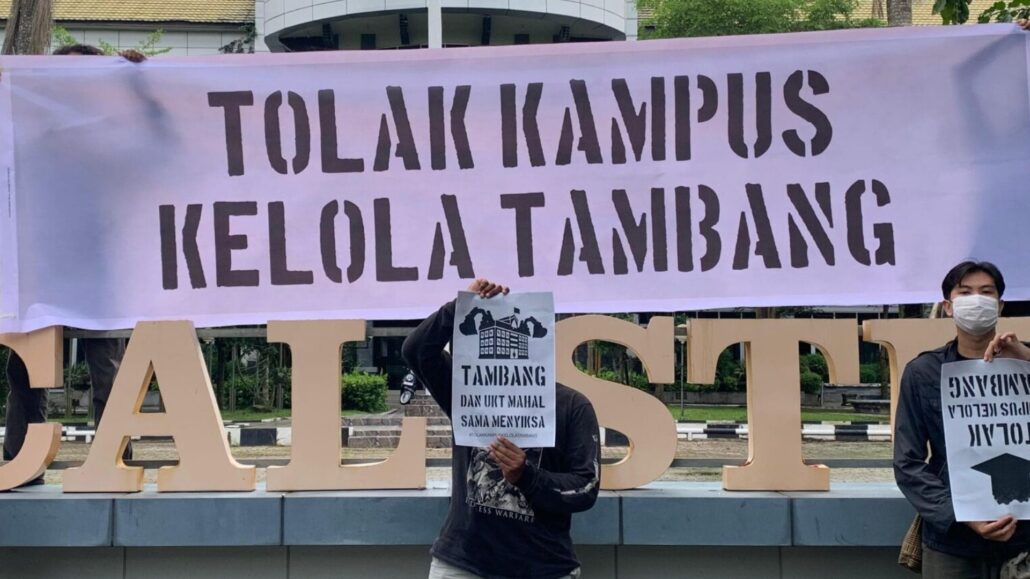
Forum Rektor Indonesia menyatakan dukungannya untuk perguruan tinggi mengelola tambang (Kompas.com 2025). Salah satu dalil yang mengabsahkan pernyataan tersebut adalah tambang bisa menjadi sumber pendapatan, alih-alih menarik biaya kuliah yang tinggi dari mahasiswa (Kompas.com 2025). Berdasarkan survei yang yang dilakukan oleh rektor Universitas Islam Indonesia, 75% suara publik menolak izin kampus untuk mengelola tambang (UIITV 2025). Peran kampus utama kampus adalah memproduksi pengetahuan sehingga dapat melayani masyarakat dengan memberikan jawaban atas persoalan masyarakat secara responsif dan menjadi kritikus yang berpikir jauh ke depan (Shapiro 2009). Kampus tidak hanya bertugas menyediakan pendidikan dan program yang dibutuhkan, tetapi juga mengajukan pertanyaan-pertanyaan penting yang tidak terpikirkan oleh publik serta menghasilkan ide-ide baru untuk membuat proyeksi mengenai masa depan. Dengan kata lain, universitas adalah refleksi dari kepercayaan publik dalam membangun peradaban yang sarat keadilan dan kesejahteraan. Sementara itu, korporasi, dalam hal ini sektor tambang, memiliki peran yang sangat berbeda dengan kampus, yakni produksi profit. Namun, saat kampus diterpa wacana untuk mengelola tambang, dua peran kampus di atas terancam tidak bisa berjalan sebagaimana mestinya. Batas antara korporasi dengan kampus dapat menjadi kabur. Jika hal ini terjadi, maka ada beberapa risiko besar yang akan kita hadapi. Isu transparansi dan akuntabilitas sektor tambang Sektor pertambangan yang ideal adalah yang berkomitmen pada prinsip-prinsip pembangunan berkelanjutan (Frederiksen and Banks 2022). Hal ini mencakup keterbukaan terhadap regulasi, kesediaan menerima batasan demi kesejahteraan lingkungan dan masyarakat, serta transparansi dalam operasionalnya. Namun, pada praktiknya, industri ini sering kali menolak regulasi baru yang dianggap membebani dan bahkan mencari celah untuk menghindari peraturan yang sudah ada. Salah satu masalah besar dalam sektor tambang adalah kurangnya transparansi dan dialog. Dalam studi kasus di Ghana, sektor tambang ini secara aktif mencoba mengendalikan narasi publik, menghindari sorotan kritis, dan membatasi diskusi terbuka tentang dampak operasional mereka (Famiyeh et al. 2021). Tekanan dalam industri dapat mendorong perusahaan untuk mengadopsi pendekatan “bertindak dulu, minta izin kemudian” (Frederiksen and Banks 2022), sebuah praktik yang memperlihatkan bagaimana sektor ini sering menempatkan kepentingan bisnis di atas kepatuhan terhadap aturan. Hal tersebut juga lekat dengan situasi Indonesia yang terekam dari berbagai macam dokumentasi, misalnya bagaimana dugaan pelanggaran HAM pada sektor batubara berusaha ditutup-tutupi dengan narasi elektrifikasi pada masa pemerintahan Jokowi (Rohma 2019). Yang lebih mencemaskan, akademisi di negara-negara maju seperti Inggris pun masih banyak yang terlibat dalam lobi untuk menolak regulasi yang lebih ketat terhadap sektor pertambangan (Frederiksen and Banks 2022). Jika dalam lingkungan yang lebih stabil dan demokratis saja universitas menghadapi dilema seperti ini, bagaimana mungkin kita bisa terlalu optimis bahwa universitas di Indonesia—dengan lingkungan sosial dan politik yang tidak lebih kondusif—akan mampu membuat terobosan baru dan menerapkan tata kelola pertambangan yang lebih progresif dan berkelanjutan? Kaburnya batas antara industri dengan kampus Dalam sebuah sistem sosial, kampus berfungsi sebagai coercive stress atau coercive pressure, yaitu elemen luar yang memberikan tekanan kritis kepada sektor tambang untuk tetap transparan dan bertanggung jawab (Famiyeh et al. 2021). Kampus harus sebagai pihak di luar sektor tambang harus dapat mengawasi dan memberikan tekanan moral terhadap sektor tambang, menuntut transparansi dan akuntabilitas yang lebih besar, yang dalam konteks Indonesia masih sangat kurang. Namun, ketika batas antara korporasi dan akademia menjadi kabur, terdapat risiko bahwa universitas lebih berfokus pada produksi profit daripada produksi pengetahuan. Dalam konteks izin tambang bagi perguruan tinggi di Indonesia, universitas tidak hanya berisiko terjerumus ke dalam model transfer teknologi untuk industri, tetapi juga dapat kehilangan peran utama mereka sebagai pusat kepemimpinan intelektual dan sosial. Jika dikelola dengan tidak hati-hati, universitas bisa berakhir menjadi bahan bakar bagi industri alih-alih menjadi mesin penggerak sosial yang inovatif dan berkelanjutan. Mengelola tambang bukanlah tugas utama perguruan tinggi. Kampus telah dieksploitasi seperti sapi perah dalam mengelola sumber daya, diberi berbagai tanggung jawab tambahan yang melelahkan di luar Tri Dharma perguruan tinggi, sementara mengelola tambang tidak bisa dilakukan secara serampangan. Kampus harus tetap pada fungsi sosialnya untuk menjadi standar moralitas dan intelektualitas yang tidak boleh teralihkan fokusnya untuk melakukan inovasi pendanaan yang berkelanjutan dan selaras dengan prinsip-prinsip pendidikan (Fathana 2025). Kampus sebagai katalisator, bukan pemain Sektor pertambangan telah membuat beberapa kemajuan menuju keberlanjutan (Famiyeh et al. 2021). Banyak perusahaan telah meningkatkan perlindungan tenaga kerja, keselamatan kerja, serta memperluas program tanggung jawab sosial perusahaan (CSR). Hal ini membuktikan bahwa potensi keberlanjutan dalam sektor ini memang ada, tetapi perubahan radikal tetap diperlukan untuk menyelamatkan semua entitas yang terlibat. Dalam konteks ini, universitas seharusnya berperan sebagai katalisator perubahan radikal, bukan sebagai pemain tambang yang turut dipantau dan dituntut tanggung jawabnya. Universitas seharusnya menjadi pihak yang mendorong inovasi, mengkritisi praktik yang merugikan masyarakat, dan menciptakan model pembangunan berkelanjutan yang lebih progresif. Jika universitas justru masuk ke dalam industri ini dan menjadi bagian dari ekosistem eksploitasi sumber daya alam, maka publik menaruh kepercaannya kepada kampus untuk menunjukkan kompas moral kepada sektor tambang tidak dapat menjalankan fungsinya. Kesimpulan Ketika sektor pertambangan semakin mendominasi ekonomi global dan nasional, kampus memiliki pilihan: menjadi pendorong perubahan atau menjadi bagian dari masalah. Jika universitas diizinkan untuk mengelola tambang, mereka tidak hanya mengambil peran yang bukan tanggung jawab utama mereka, tetapi juga berisiko kehilangan independensi akademik (The Conversation 2025) dan terjerumus ke dalam logika industri yang mereka seharusnya awasi. Eksistensi kampus dinilai saat kampus mampu menginspirasi, meneliti, dan memandu transformasi sosial, bukan yang sekadar menjadi operator tambang. Jika prinsip ini diabaikan, maka bukan hanya kampus yang kehilangan jati dirinya, tetapi juga masyarakat yang akan kehilangan salah satu benteng terakhir dalam mempertanyakan arah dan keberlanjutan pembangunan. Referensi Famiyeh, Samuel, Robert A. Opoku, Amoako Kwarteng, and Disraeli Asante-Darko. 2021. Driving Forces of Sustainability in the Mining Industry: Evidence from a Developing Country. Resources Policy 70: 101910. https://doi.org/10.1016/j.resourpol.2020.101910. Fathana, Hangga. 2025. Kampus Terjerat Tambang. Republika, 07 Februari 2025. https://www.republika.id/posts/56651/kampus-terjerat-tambang. Frederiksen, Tomas, and Glenn Banks. 2022. How Would a Mining Sector That Was Committed to Sustainable Development Behave: A 21st Century Manifesto. The Extractive Industries and Society 11: 101116. https://doi.org/10.1016/j.exis.2022.101116. Kompas.com. 2025. Forum Rektor Dukung Perguruan Tinggi Boleh Kelola Tambang. 22 Januari 2025. https://nasional.kompas.com/read/2025/01/22/14251041/forum-rektor-dukung-perguruan-tinggi-boleh-kelola-tambang. Kompas.com. 2025. Forum Rektor Sebut Biaya Kuliah Bisa Turun jika Kampus Kelola Tambang. 22 Januari 2025. https://nasional.kompas.com/read/2025/01/22/17284071/forum-rektor-sebut-biaya-kuliah-bisa-turun-jika-kampus-kelola-tambang. Rohma, Masitoh Nur. 2019. Narasi Elektrifikasi Rezim Jokowi ‘Menutupi’ Dugaan Pelanggaran HAM di Sektor
Mendobrak Tabu Solusi Satu Negara
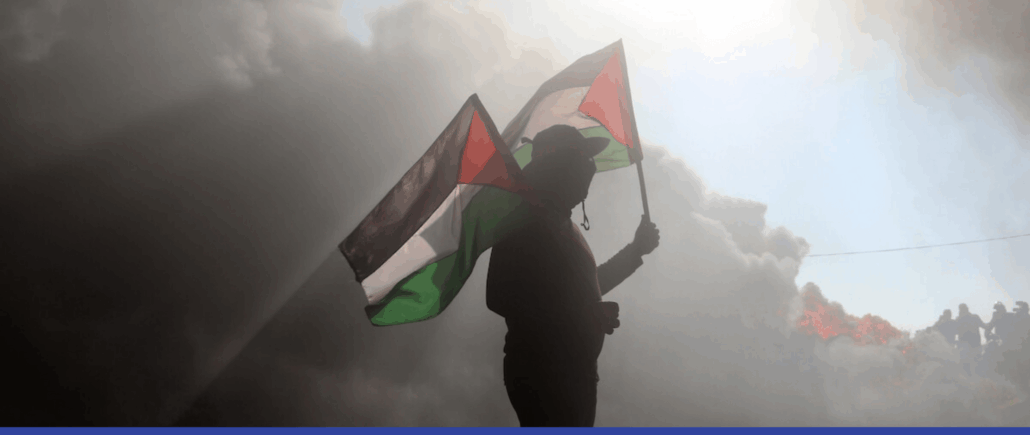
Beberapa pekan lalu, Presiden Prabowo Subianto menyampaikan dua pidato terpisah dalam dua forum yang berbeda saat berlangsungnya HLW (High Level Week) di Markas Perserikatan Bangsa-Bangsa di New York. Pidato pertama Prabowo disampaikan di Konferensi Tingkat Tinggi Penerapan Solusi Dua Negara, dimana dalam pidato tersebut Prabowo menegaskan bahwa Indonesia akan segera mengakui Israel dengan kondisi bahwa Israel mengakui eksistensi Palestina. Dalam pidato keduanya, Prabowo juga menyampaikan bahwa seiring dengan pengakuan terhadap Palestina oleh Israel, Indonesia juga akan menjamin keamanan Israel. Pernyataan yang disampaikan oleh Prabowo Subianto ini memicu kontroversi yang tak berkesudahan di media sosial. Adanya afirmasi positif Netanyahu terhadap pidato Prabowo makin memperuncing perdebatan ini. Masyarakat terbelah menjadi dua, dimana ada pihak yang mendukung solusi dua negara (two-state solution) sebagai solusi yang paling realistis dan paling adil di antara semua solusi yang ada. Pihak lain berdiri pada solusi satu negara (one-state solution), sebagai sebuah solusi yang dapat mencegah terjadinya kembali kejahatan kemanusiaan oleh entitas Israel dan memastikan bahwa tidak ada negara yang diberikan lisensi lagi untuk melanjutkan penjajahan di tanah Palestina. Di tengah perdebatan ini, solusi satu negara dianggap sebagai tabu dan impian di siang bolong. Kontroversi ini penting untuk dibahas secara lebih mendalam, karena pengakuan terhadap eksistensi entitas yang disebut Israel di tengah genosida yang tiap hari menimbulkan korban di Gaza perlu dipertimbangkan secara serius. Pemberian pengakuan terhadap entitas Israel yang sedang melakukan genosida justru akan melanggengkan impunitas dan mencegah keadilan untuk dapat ditegakkan secara penuh. Hal pertama yang perlu kita sama-sama gugat adalah: mengapa solusi dua negara seolah menjadi hegemonik dan dianggap paling realistis, sedangkan solusi satu negara menjadi tabu yang tak layak dibicarakan? Simalakama Solusi Dua Negara Wacana solusi dua negara menjadi wacana yang hegemonik karena wacana ini terbentuk melalui proses perdamaian antara Israel, Palestina dan negara-negara di kawasan Arab yang dikawal sejak tahun 1967 oleh Amerika Serikat. Pendekatan solusi dua negara berkembang dari formulasi “land for peace” atau pengembalian/pertukaran teritori oleh pihak yang bertikai untuk mencapai kesepakatan damai (Rynhold, 2001). Pendekatan ini awalnya untuk menggunakan untuk menyelesaikan sengketa antara Israel dan Mesir di Semenanjung Sinai. Adanya mekanisme tersebut kemudian dipakai sebagai referensi untuk menyelesaikan sengketa yang berjung pada rentetan negosiasi antara pihak Israel dan Organisasi Pembebasan Palestina (Palestinian Liberation Organization atau disebut juga PLO) (Hallward, 2011). Perjanjian Oslo I & II yang disepakati oleh Israel dan PLO berangkat atas basis land for peace, dimana kedua belah pihak menyepakati pembagian lahan untuk memastikan perdamaian dapat berlangsung secara berkelanjutan antara pihak Israel dan Palestina. Bagi kalangan politisi progresif di Israel, land for peace merupakan kunci dari terbangunnya relasi organik antar masyarakat Israel dan Palestina. Interaksi tersebut dibangun melalui kawasan ekonomi bersama seperti di kawasan Barkan, Tepi Barat, dimana kolaborasi ekonomi antara masyarakat Israel dan Palestina diharapkan membangun saling percaya dan persepsi positif antar kedua bangsa (Qumsieh, 1998). Namun, tentu saja, kerangka solusi dua negara dalam kerangka Perjanjian Oslo memiliki simalakama yang memunculkan lebih banyak petaka bagi warga Palestina. Petaka pertama adalah manipulasi Israel terhadap Perjanjian Oslo yang memungkinkan pendirian banyaknya pemukiman ilegal di kawasan Tepi Barat. Riset Gordon & Cohen (2012) menyebutkan bahwa semua partai di Israel, terlepas dari ideologinya, membuka kesempatan perluasan pemukiman ilegal di Tepi Barat. Perluasan ini juga dimungkinkan oleh sikap Amerika Serikat dan negara-negara di Barat yang menolak untuk memberikan pengakuan terhadap Palestina. Petaka kedua adalah kebijakan perbatasan Israel yang diberlakukan dalam kerangka penerapan Perjanjian Oslo bersifat amat militeristik dan seringkali mengambat warga negara Palestina untuk melakukan kegiatan sehari-hari secara normal. Laporan Amnesty International yang mengutip penelitian dan pantauan lapangan B’Tselem di tahun 2022 jelas menegaskan bahwa kehadiran pos militer di perbatasan kawasan Tepi Barat dan Jalur Gaza selama bertahun-tahun telah melanggar hak asasi warga Palestina untuk melanjutkan hidup dengan selayaknya (Amnesty International, 2022). Manipulasi dan militerisasi makin diperparah di bawah rezim Netanyahu yang ultra-nasionalis. Rezim Netanyahu berkeinginan untuk meniadakan entitas negara Palestina, membuat pemberlakuan solusi dua negara menjadi jauh panggang dari api. Urgensi Solusi Satu Negara Adanya genosida Gaza mulai merontokkan basis ideologi Zionisme pada jantungnya, yakni masyarakat Yahudi di Israel. Ada beberapa lingkar orang-orang Yahudi yang berpikir ulang relevansi eksistensi Israel dan ideologi Zionisme. Beberapa intelektual dan politisi Yahudi mulai menjadi pembela ulung anti-Zionisme, anti-Israel dan mendukung narasi solusi satu negara yang demokratik dan menjamin hak asasi manusia untuk semua. Salah satu intelektual Yahudi tersebut adalah Avraham Burg, mantan Ketua Parlemen Israel. Burg mendorong adanya pemikiran negara baru yang memajukan demokrasi tanpa batas etnis dan agama untuk semua pihak (Burg, 2025). Burg bahkan memulai satu langkah kontroversial untuk mencabut statusnya sebagai orang Yahudi untuk menghilangkan privilese yang ia dapatkan sebagai warga negara Israel (Vienna Institute for International Dialogue and Cooperation, 2024). Solusi satu negara juga dikemukakan oleh intelektual Palestina, Rashid Khalidi, yang juga beranggapan bahwa solusi terbaik bagi masalah Israel-Palestina adalah menciptakan solusi dimana dua bangsa bisa hidup dengan damai dan penuh dengan keadilan, tanpa adanya praktik settler-colonialism Israel yang menginjak hak dan martabat warga Palestina (The American University in Cairo, 2024). Solusi satu negara bukan solusi yang tidak realistis. Beberapa riset, seperti yang dilakukan oleh Nimni (2019) membuka kemungkinan model binational state (satu negara dua bangsa) yang berdasar pada shared sovereignty (kedaulatan bersama) dan nonterritorial autonomy (otonomi tanpa basis territorial yang diklaim secara ketat) dapat diterapkan demi perdamaian dan keadilan di antara kedua bangsa. Kebijakan ini merupakan kebijakan yang berjangka panjang yang akan membutuhkan proses rekonsiliasi berjalan terlebih dahulu. Selain itu, pengembalian lahan-lahan yang telah direbut paksa oleh Israel menjadi proses penting untuk mengembalikan kembali harkat dan martabat bangsa Palestina yang telah hilang sejak Nakba di tahun 1948. Apapun yang menjadi solusi yang disepakati kedepannya, hanya bangsa Palestina yang layak memberikan jawaban akhirnya. Tentu saja, solusi ini hanya bisa diterapkan setelah para penjahat perang Israel dihukum atas segala kesalahannya. Referensi Amnesty International. (2022). SRAEL’S APARTHEID AGAINST PALESTINIANS CRUEL SYSTEM OF DOMINATION AND CRIME AGAINST HUMANITY . Retrieved from https://www.amnesty.org/en/wp-content/uploads/2022/02/MDE1551412022ENGLISH.pdf Burg, A. (2025, October 7). The day that never ended. Retrieved October 13, 2025, from The Observer website: https://observer.co.uk/news/international/article/october-7-the-day-that-never-ended Gordon, N., & Cohen, Y. (2012). Western interests, Israeli unilateralism, and the two-state solution. Journal of Palestine Studies, 41(3), 6-18 Hallward, M.
Diplomasi Ekonomi Indonesia di Era Pasca Pandemi: Manufaktur sebagai Mesin Pemulihan
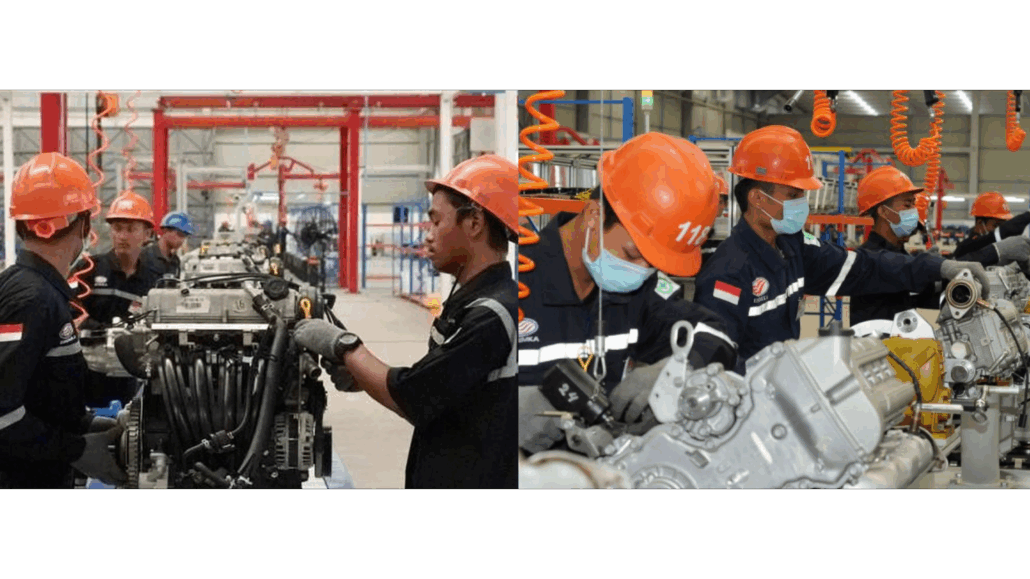
Di tengah arus globalisasi dan hantaman pandemi COVID-19, diplomasi ekonomi Indonesia bergerak dari jargon ke hasil nyata. Dalam tradisi hubungan internasional, kepentingan ekonomi memang sejak lama menjadi pendorong hubungan diplomatik (Berridge & James, 2003). RPJMN 2020–2024 secara tegas menempatkan diplomasi ekonomi—khususnya ekspor dan investasi—sebagai tuas pertumbuhan (Kementerian PPN/Bappenas, 2020). Fokus ini kian relevan ketika perang dagang AS–Tiongkok mengguncang rantai pasok dan mendorong negara-negara ASEAN—termasuk Indonesia—berlomba memperkuat daya saing kawasan (Sayekti, 2019). Berbeda dari era sebelumnya yang lebih menonjolkan diplomasi politik-keamanan, Presiden Joko Widodo mendorong orientasi yang lebih pragmatis: perdagangan internasional dan investasi asing sebagai mesin kesejahteraan. Dorongannya lahir dari sederet faktor: defisit neraca perdagangan dan rapuhnya rupiah (BPPK Kemlu, 2015); dominasi ekspor berbasis bahan mentah dan belum optimalnya posisi Indonesia dalam global value chains (Nurdiati et al., 2018); melambatnya pertumbuhan di pasar tradisional Barat dan Asia Timur (Prasetyo & Susandika, 2021); efektivitas kerja sama kawasan yang belum maksimal; hingga kebutuhan hilirisasi untuk mencipta nilai tambah di dalam negeri (CNN Indonesia, 2019). Pada saat yang sama, Masyarakat Ekonomi ASEAN menjadikan Asia Tenggara pasar tunggal yang menuntut perbaikan regulasi investasi dan perdagangan lintas batas. Realitasnya, kontribusi lapangan kerja manufaktur di negara berkembang masih kecil jika dibandingkan negara maju (Arfani & Hapsari, 2021). Di sinilah diplomasi ekonomi menjadi instrumen kebijakan luar negeri yang bukan hanya mengejar surplus, tetapi juga menata struktur produksi dan memperkuat ekosistem industri domestik (Okano-Heijmans, 2011). Kebijakan luar negeri periode kedua Jokowi menempatkan penguatan peran Indonesia di ASEAN dan diplomasi ekonomi sebagai prioritas—sejalan dengan agenda penyelesaian perbatasan, perlindungan WNI, dan perluasan jejaring global (Haryono, 2019). Pada periode pertama, Indonesia mendorong penghapusan hambatan non-tarif dan pembukaan pasar baru: Eropa Timur-Tengah, Afrika, Amerika, Karibia, hingga Asia yang bertumbuh cepat (Kemlu RI, 2015). Orientasi ini kian penting di era pasca pandemi, ketika ketahanan perdagangan dan investasi harus dijaga sekaligus dipulihkan. Dari sisi kinerja, manufaktur terbukti menjadi tulang punggung ekspor. Periode Januari–April 2023, manufaktur menyumbang 70,21 % dari total ekspor nasional, dengan ekspor senilai US $60,63 miliar dari total US $86,35 miliar (Junida, 2023). Selama tahun 2023, ekspor sektor industri pengolahan (manufaktur) mencapai US $186,98 miliar, menyumbang 72,24 % dari total ekspor nasional sebesar US $258,82 miliar (Mahadi, 2024). Dari sisi investasi di sektor manufaktur, sepanjang tahun 2022, realisasi investasi sektor manufaktur mencapai Rp497,7 triliun, naik 52 % dibandingkan tahun sebelumnya (Islamiati, 2023). Periode Januari–September 2022, sektor manufaktur menyumbang 40,9 % dari total investasi nasional, mencapai Rp365,2 triliun (Gani, 2022). Pasca COVID-19, sektor manufaktur tetap menjadi andalan ekspor Indonesia, walaupun kontribusinya turun sedikit dari kisaran 75–80 % menjadi sekitar 70–72 %, tetapi tetap mendominasi. Di sisi investasi, manufaktur mencatat pertumbuhan signifikan pada 2022, memperkuat keyakinan bahwa industrialisasi dan hilirisasi adalah strategi utama keluar dari krisis—selaras dengan semangat “tidak menjual komoditas mentah saja”. Bagaimana strategi diplomasi ekonominya? Pertama, economic salesmanship: para diplomat dan duta besar diposisikan sebagai “tenaga penjual” negara untuk mempromosikan perdagangan dan investasi, bersinergi lintas kementerian dan bank sentral (Sabaruddin, 2016). Pandemi memang membatasi pameran fisik, tetapi membuka ruang bagi kurasi virtual dan temu bisnis daring—membuktikan promosi bisa lincah tanpa kehilangan skala (Kemendag, 2020). Kedua, networking: ekspansi BUMN ke Afrika; penyelenggaraan Trade Expo Indonesia; dan jejaring dengan filantropi teknologi—misalnya kemitraan dengan Alibaba/Jack Ma—yang menunjukkan diplomasi ekonomi juga menyasar kolaborasi penanganan krisis (Kemlu RI, 2020). Ketiga, image building/promotion: membangun citra keandalan produk dan ekosistem usaha Indonesia melalui kunjungan kenegaraan, forum G20, dan business matching virtual. Ini bukan sekadar kampanye reputasi; citra positif memperpendek trust gap investor dan pembeli (Kemendag, 2020). Keempat, regulation management: pembentukan koalisi domestik negara–swasta untuk menetapkan standar dan menyelesaikan perjanjian perdagangan prioritas—dari IEU-CEPA hingga PTA/CEPA di berbagai kawasan—sekaligus menerbitkan protokol dagang era normal baru (Basith, 2020; Kemendag, 2020). Empat poros ini saling menguatkan: promosi menarik minat, jejaring membuka pintu, citra menumbuhkan kepercayaan, regulasi memastikan kepastian hukum. Dalam kerangka negara berkembang, tipe diplomasi ekonomi yang efektif memang bertumpu pada kemitraan publik–swasta yang luas (Rana, 2007). Indonesia mempraktikkan pola ini: negara menyiapkan perjanjian, regulasi, dan promosi; pelaku usaha mengeksekusi ekspor-investasi dan memperkuat rantai pasok. Ketika hambatan non-tarif ditekan, pasar non-tradisional dibuka, dan hilirisasi dipacu, manufaktur memperoleh ruang bernapas untuk naik kelas—dari sekadar perakit menjadi produsen bernilai tambah. Tentu masih ada pekerjaan rumah: memperlebar basis produk, memperdalam teknologi, dan meningkatkan penyerapan tenaga kerja berkualitas—agar lonjakan ekspor dan investasi terkonversi menjadi kesejahteraan yang merata. Namun arah kebijakan sudah tepat: diplomasi ekonomi bukan pelengkap, melainkan instrumen inti pemulihan dan transformasi. Dengan kombinasi salesmanship yang agresif, jejaring yang relevan, promosi yang kredibel, dan manajemen regulasi yang adaptif, Indonesia menegaskan peran sebagai produsen bernilai—bahkan di tengah guncangan pandemi (Nabilla, 2021; Haryono, 2019). Intinya, pandemi mempercepat pembuktian bahwa diplomasi ekonomi bekerja ketika strategi industri dirangkai dengan perjanjian dagang, promosi cerdas, dan eksekusi hilirisasi. Jika konsisten, Indonesia tak hanya pulih—tetapi melaju sebagai basis manufaktur utama ASEAN, dengan diplomasi ekonomi sebagai mesin penggerak (Kemendag, 2020; Kemenperin, 2021; Santia, 2021). Referensi Arfani, R. N., & Hapsari, M. (2021, 22 Desember). Diplomasi komoditas Indonesia pascapandemi. Media Indonesia. https://mediaindonesia.com/opini/459557/diplomasi-komoditas-indonesia-pascapandemi Media Indonesia Basith, M. K. (2020, 18 November). Ini lima prioritas perjanjian dagang yang dikejar Indonesia tahun 2020. Kontan.co.id. https://nasional.kontan.co.id/news/ini-lima-prioritas-perjanjian-dagang-yang-dikejar-indonesia-tahun-2020kontan.co.id Berridge, G. R., & James, A. (2003). A dictionary of diplomacy (2nd ed.). Palgrave Macmillan. kamudiplomasisi.org CNN Indonesia. (2019, 20 November). Jokowi yakin hilirisasi atasi defisit transaksi berjalan. CNN Indonesia. https://www.cnnindonesia.com/ekonomi/20191120191505-532-450112/jokowi-yakin-hilirisasi-atasi-defisit-transaksi-berjalan CNN Indonesia Gani, M. (2022, Oktober 24). Investasi Sektor Manufaktur Naik 54% Tahun 2022.Kemenperin. https://ikmbspjisby.kemenperin.go.id/index.php/web/newsDetail/492 Haryono, E. (2019). Economic diplomacy as Indonesian foreign policy orientation in 2015–2018: Challenges and opportunities. Global Strategis, 13(2), 49–62. https://e-journal.unair.ac.id/JGS/article/view/12067 Universitas Airlangga Journal Islamiati, R. (2023, Januari 25). Investasi Sektor Manufaktur Tembus Rp497,7 Triliun, Ini Klaim Kemenperin. https://ekonomi.bisnis.com/read/20230126/257/1621868/investasi-sektor-manufaktur-tembus-rp4977-triliun-ini-klaim-kemenperin. Junida, A. (2023, Mei 15). Kemenperin yakin ekspor manufaktur Indonesia kembali meningkat. Antara News. Kementerian Luar Negeri Republik Indonesia. (2015). Pedoman umum upaya peningkatan kualitas pelaksanaan diplomasi ekonomi. https://kemlu.go.id/files/repositori/56594/03_Pedoman_Umum_Upaya_Peningkatan_Kualitas_Pelaksanaan_diplomasi_Ekonomi.pdf kemlu.go.id Kementerian Perencanaan Pembangunan Mahadi, A. (2024, Januari 17). Kemenperin: Ekspor industri manufaktur tembus US$187 miliar selama tahun 2023.Kontan. https://industri.kontan.co.id/news/kemenperin-ekspor-industri-manufaktur-tembus-us-187-miliar-selama-tahun-2023 Nasional/Bappenas. (2020). Rencana Pembangunan Jangka Menengah Nasional (RPJMN) 2020–2024: Buku I—Agenda Pembangunan Nasional. https://www.bappenas.go.id/id/publikasi/rpjmn-2020-2024 perpustakaan.bappenas.go.id Kementerian Perindustrian Republik Indonesia. (2021, 12 September). Unggul di ASEAN, kinerja industri Indonesia terus menguat. https://kemenperin.go.id/artikel/22780/Unggul-di-ASEAN,-Kinerja-Industri-Indonesia-Terus-Menguathubunganinternasional.id Nabilla, N. (2021). Strategi diplomasi ekonomi Indonesia dalam menghadapi pandemi
Revisiting ASEAN as Security Community: The Case of Thailand-Cambodia Longstanding Dispute
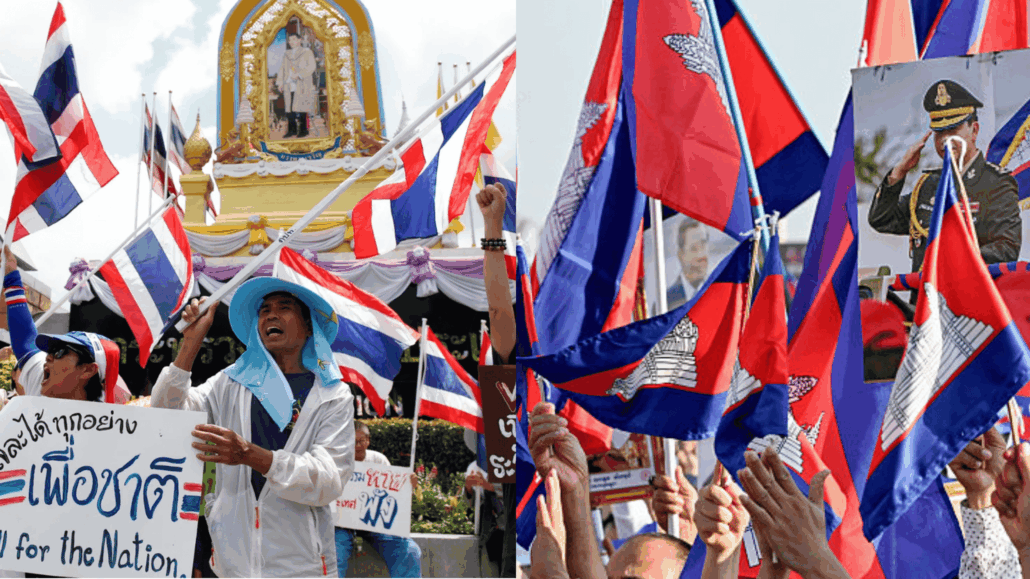
Understanding ASEAN as Security Community Echoing a phoenix emerging from the ashes, ASEAN was founded in 1967 in the midst of turmoil, conflict, and confrontation that continued to shake the Southeast Asian region. For centuries, the region had experienced colonial rule—beginning in the 16th century—and was later subjected to persistent instability fuelled by ideological rivalries during the Cold War between the United States and the Soviet Union. Internal unrest, such as recurring rebellions in Indonesia to ethnic tensions in Myanmar, as well as unresolved border disputes further contributed to the fragile security environment in Southeast Asia. The emergence of a regional organization fostered renewed aspirations for stability, peace, and enduring cooperation among its member states. These hopes were further solidified in 1976, when ASEAN’s founding countries—Indonesia, the Philippines, Malaysia, Thailand, and Singapore—formally committed to shared principles by signing the Treaty of Amity and Cooperation. The treaty articulated core values such as non-interference, mutual respect, and the peaceful settlement of disputes, which have since shaped the normative framework of ASEAN cooperation (Yamakage, 2017). The treaty has since undergone three amendments, in line with the gradual expansion of ASEAN membership to include Brunei, Vietnam, Myanmar, and Laos, with Cambodia joining as the last member state in 1999. ASEAN’s success in bringing together ten countries under a regional framework has led to its recognition as a security community. A security community is defined as a condition in which states and societies within a given region become increasingly integrated under shared institutions, while developing a collective identity that prioritizes peaceful mechanisms for resolving conflicts—particularly those that arise between member states (Acharya, 2009; Deutsch et al., 1957). At first glance, ASEAN appears to fulfil the characteristics of a security community, especially with the formal establishment of the ASEAN Political-Security Community (APSC) in 2015. The creation of the APSC marked a significant institutional step in ASEAN’s efforts to consolidate regional peace and security. It reaffirmed the organization’s commitment to a rule-based order and its vision of fostering ‘a cohesive, peaceful, stable, and resilient region with shared responsibility for comprehensive security’ (ASEAN Secretariat, 2009; Khoirunnisa, 2023). Acharya further observed that the principle of peaceful dispute settlement has been effectively implemented, as evidenced by the absence of armed conflict among its founding members since the inception of ASEAN and its active role in supporting peace efforts during the Cambodia–Vietnam conflict in 1991 (Acharya, 2009; Pou et al., 2021) Despite ASEAN’s normative commitment to peaceful dispute resolution, the resurgence of the Thailand–Cambodia border conflict on 24 July 2025 posed a significant test for the organization. The armed confrontation, which claimed the lives of more than 30 individuals—including both civilians and military personnel—has sparked concerns over the actual capacity of the ASEAN Political-Security Community (APSC) to implement preventive diplomacy effectively and to manage or de-escalate both intra- and inter-regional conflicts (Al Jazeera, 2025). A Brief Overview of Thailand-Cambodia Dispute The border conflict between Bangkok and Phnom Penh over the Preah Vihear Temple area has deep historical roots, dating back to the post-French colonial era in the Indochina region. The competing claims over the temple were brought before the International Court of Justice (ICJ), which ruled that the temple itself belonged to Cambodia. However, this decision ultimately created a ticking time bomb, as it failed to resolve the full scope of the territorial dispute. Although the Thai government formally accepted the ruling regarding Cambodian ownership of the temple, the surrounding 4.6 km2 area were left unaddressed, leaving room for future tensions to escalate (Wagener, 2011). The people living near the temple has repeatedly experienced episodes of armed confrontation between Thai and Cambodian forces, most notably in 2008 and 2011—events that once again prompted the involvement of both the ICJ and ASEAN. The most recent clash, which occurred in late July 2025, was characterized by the Cambodian government as an act of aggression by Thailand, signalling a renewed escalation in the longstanding territorial dispute (Planasari, 2025). To summarize, the conflict has persisted for decades without a lasting resolution. Its recurrence has been driven not only by unresolved territorial issues but also by entrenched mistrust and negative perceptions between the governments and peoples of both countries. The 2008 and 2011 dispute, in particular, were exacerbated by the involvement of ultra-nationalist groups and anti-Thaksin demonstrators in Thailand, whose political agendas exacerbated bilateral hostility—particularly given that former Thai Prime Minister, Thaksin Shinawatra, maintained notably close relations with his Cambodian counterpart during his reign (Pongsudhirak, 2018). Negative sentiment toward Cambodia also grew within Thai society, rooted in the historical memory of Siam’s defeat by French-backed Cambodia—a loss that has often been perceived as a national humiliation (Jenne, 2017). These circumstances have further deepened scepticism regarding ASEAN’s ability to function as a credible mediator capable of producing durable solutions—let alone cultivating a meaningful ‘sense of community’ among its populations to mitigate intra-regional tensions. ASEAN in Action? Evaluating Regional Response to Thailand-Cambodia Crisis ASEAN has consistently sought to contribute to preventing the escalation of conflict whenever tensions flared between Thailand and Cambodia. In 2011, for instance, Indonesia, as the ASEAN Chair at the time, encouraged both parties to agree to a ceasefire through shuttle diplomacy. In this approach, Jakarta, led by former Indonesian Minister of Foreign Affairs Marty Natalegawa, held separate negotiations with each of the conflicting parties (Fadhilah, 2022). Although a ceasefire agreement was successfully reached, the high level of mistrust between Thailand and Cambodia became a major obstacle to achieving a swift or even permanent ceasefire, as mandated by the United Nations Security Council (UNSC) (Wagener, 2011). Amid the clash that took place in 2025, Malaysia, acting as the current ASEAN Chair, responded promptly to the crisis by offering to mediate between the two parties. Nevertheless, reports indicated that the willingness of both sides to enter negotiations was also influenced by pressure from the United States and China (Karuppannan, 2025). This suggests that, in this instance, ASEAN did not possess sufficient leverage to effectively urge its member states to uphold regional stability. Furthermore, the mediation
Berani Mengatakan Kebenaran: Ujian Kepemimpinan Prabowo Dalam Polemik Ijazah
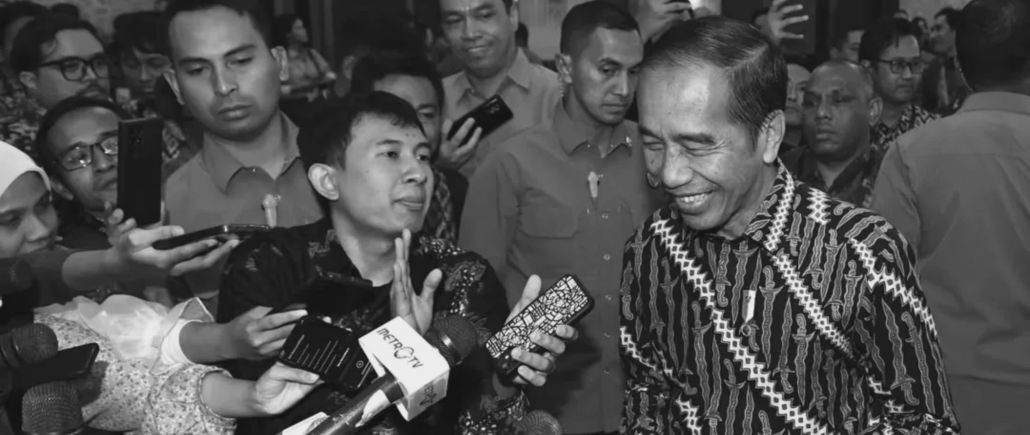
Dalam setiap tatanan kehidupan berbangsa dan bernegara yang demokrasi, pemimpin memegang peranan penting dalam menjaga kepercayaan publik, stabilitas negara, dan arah masa depan bangsa. Salah satu nilai fundamental yang harus dimiliki oleh setiap pemimpin adalah keberanian untuk mengatakan kebenaran, sekalipun kebenaran itu pahit dan tidak populer. Kejujuran bukan hanya merupakan nilai moral, tetapi juga pondasi utama dalam membangun pemerintahan yang adil, transparan, dan dipercaya rakyat. Dalam konteks Indonesia saat ini, di bawah kepemimpinan Presiden Prabowo Subianto, semangat menegakkan kebenaran dan keadilan sedang menghadapi ujian serius, salah satunya terkait isu ijazah Presiden sebelumnya, Joko Widodo (Jokowi). Sejak beberapa bulan terakhir di tahun 2025, Polemik soal keaslian ijazah Jokowi belum menemukan titik terang. Polemik ijazah Jokowi di gugat oleh empat orang yang vokal menggugat keaslian ijazah Jokowi. Empat terlapor tersebut adalah Roy Suryo, Rismon Sianipar, Rizal Fadillah, dan dokter Tifauzia (CNN Indonesia, 2025). Menanti Titik Terang Kebenaran Sampai saat ini, polemik tersebut telah lama menjadi sorotan publik, baik di media sosial maupun dalam diskusi-diskusi masyarakat secara langsung. Jokowi menyatakan bahwa ia adalah lulusan Universitas Gadjah Mada (UGM) angkatan 1980 dan lulus tahun 1985 serta sudah dikonfimasi oleh pihak UGM (Grehenson, 2025). Jokowi juga menegaskan melalui kuasa hukumnya Firmanto dan Yakub Hasibuan bahwa Jokowi memiliki ijazah dari kampus tersebut (BBC News, 2025). Namun sebagian masyarakat merasa ada kejanggalan dan mendesak agar Presiden Jokowi menunjukkan ijazah aslinya kepada publik. Alih-alih merespons permintaan tersebut secara terbuka, Jokowi memilih untuk tidak menampilkan ijazahnya, dengan alasan bahwa beban pembuktian berada di pihak yang menuduh. Sikap ini memunculkan perdebatan yang tidak kunjung selesai, bahkan memicu polarisasi opini publik. Islam dan Kejujuran Dalam Islam, kejujuran merupakan prinsip yang sangat dijunjung tinggi. Rasulullah Muhammad SAW dikenal sebagai Al-Amin (yang terpercaya) karena kejujurannya yang konsisten, bahkan sebelum diangkat menjadi nabi. Seorang pemimpin dalam Islam dituntut untuk adil, jujur, dan berani mengungkapkan kebenaran dalam segala situasi. Ketika kejujuran dikesampingkan demi kepentingan kekuasaan, maka kerusakan sosial dan ketidakpercayaan publik akan menjadi konsekuensi yang tak terhindarkan. Sayangnya, banyak elite politik di Indonesia yang terjebak dalam budaya pragmatisme kekuasaan, di mana segala cara dianggap sah asal bisa meraih jabatan. Ini adalah bentuk degradasi moral yang sangat membahayakan integritas demokrasi dan hukum. Penantian Sebuah Harapan Kini, di bawah kepemimpinan Presiden Prabowo, bangsa Indonesia menaruh harapan agar nilai-nilai keadilan dan kebenaran kembali ditegakkan. Isu ijazah ini tidak boleh terus berlarut-larut tanpa kejelasan. Presiden Prabowo sudah memberikan komentar terkait polemik ijazah Jokowi ketika memberikan pengantar dalam siding paripurna kabinet dikantor kepresidenan (Setuningsih, 2025). Namun respon probowo tidak jelas, tegas dan terkesan menganggap angin lalu. Disamping itu, polisi dan aparat hukum sebagai instrumen penegak keadilan, harus menunjukkan integritasnya dalam menangani kasus ini secara transparan dan objektif. Jika terbukti bahwa Jokowi memalsukan ijazah, maka hukum harus ditegakkan tanpa pandang bulu. Sebaliknya, jika tuduhan tersebut terbukti fitnah, maka pihak penuduh harus dikenai sanksi yang setimpal. Inilah esensi dari keadilan dimana keadilan memberikan hak kepada yang berhak dan menghukum siapa pun yang bersalah tanpa diskriminasi. Ujian Pemimpin Penegakan hukum yang adil akan menjadi cermin dari kualitas kepemimpinan Prabowo. Ia harus mampu menunjukkan serta membuktikan kepada publik bahwa hukum di Indonesia tidak hanya tajam ke bawah dan tumpul ke atas. Prabowo tidak hanya diuji dari segi kebijakan ekonomi, pertahanan, atau diplomasi luar negeri, tetapi juga diuji dari kemampuannya menjaga moralitas dan kepercayaan masyarakat terhadap negara. Bila keadilan gagal ditegakkan dalam kasus yang menyentuh simbol-simbol kekuasaan, maka publik akan kehilangan harapan dan rasa keadilan. Dalam kondisi seperti ini, potensi munculnya keresahan sosial, bahkan bentuk perlawanan rakyat seperti people power, bisa saja menjadi kenyataan. Oleh karena itu, komitmen terhadap kebenaran bukanlah sesuatu yang bisa dinegosiasikan. Seorang pemimpin sejati adalah mereka yang memiliki keberanian moral untuk berdiri di atas kebenaran, walaupun itu bertentangan dengan kepentingan politik jangka pendek. Prabowo, sebagai presiden, harus memberikan contoh bahwa ia tidak akan melindungi siapapun dari hukum, termasuk tokoh-tokoh besar sekalipun. Ia harus mengembalikan kepercayaan rakyat terhadap sistem hukum dan pemerintahan yang selama ini dianggap lemah, tidak adil, dan penuh kepura-puraan. Keberanian untuk mengatakan yang benar adalah benar, dan yang salah adalah salah, merupakan fondasi dari negara hukum yang sehat dan sejalan dengan nilai keagamaan serta kemanusiaan. Keadilan tidak akan pernah hadir bila pemimpin dan aparat hukum tidak memiliki integritas dan keberanian moral. Semoga di bawah pemerintahan Prabowo, Indonesia benar-benar melakukan revolusi negara yang menjunjung tinggi kebenaran, dan pemimpin yang berani membela keadilan, bukan hanya dalam pidato, tetapi dalam tindakan nyata. Akankah? Wallahu A’lam. Referensi Grehenson, G. (2025, April 15). Universitas Gadjah Mada. Retrieved from Joko Widodo Alumnus UGM: https://ugm.ac.id/id/berita/joko-widodo-alumnus-ugm/ Indonesia, CNN. (2025, April 30). Roy Suryo Buka Suara soal Dilaporkan Jokowi dan Relawan ke Polisi. Retrieved from CNN Indonesia: https://www.cnnindonesia.com/nasional/20250430183458-12-1224443/roy-suryo-buka-suara-soal-dilaporkan-jokowi-dan-relawan-ke-polisi Indonesia, BBC. (2025, April 19). Jokowi diperiksa di Polresta Solo, ‘bawa ijazah SD sampai kuliah’ – Apa perkembangan terbaru polemik keaslian ijazahnya? Retrieved from BBC News Indonesia: https://www.bbc.com/indonesia/articles/cvgnwpwzn10o Setuningsih, N. (2025, Mei 08). Prabowo Merespons soal Polemik Ijazah Jokowi dan Bantah “Presiden Boneka” Artikel ini telah tayang di Kompas.com dengan judul “Prabowo Merespons soal Polemik Ijazah Jokowi dan Bantah “Presiden Boneka””, Klik untuk baca: https://nasional.kompas.com/read/2. Retrieved from Kompas: https://nasional.kompas.com/read/2025/05/08/14330091/prabowo-merespons-soal-polemik-ijazah-jokowi-dan-bantah-presiden-boneka-?page=all
Genocide in Gaza – World Pro-Injustice? The Silence of Various Global Strategic Actors in the Face of Live-Streamed Injustice
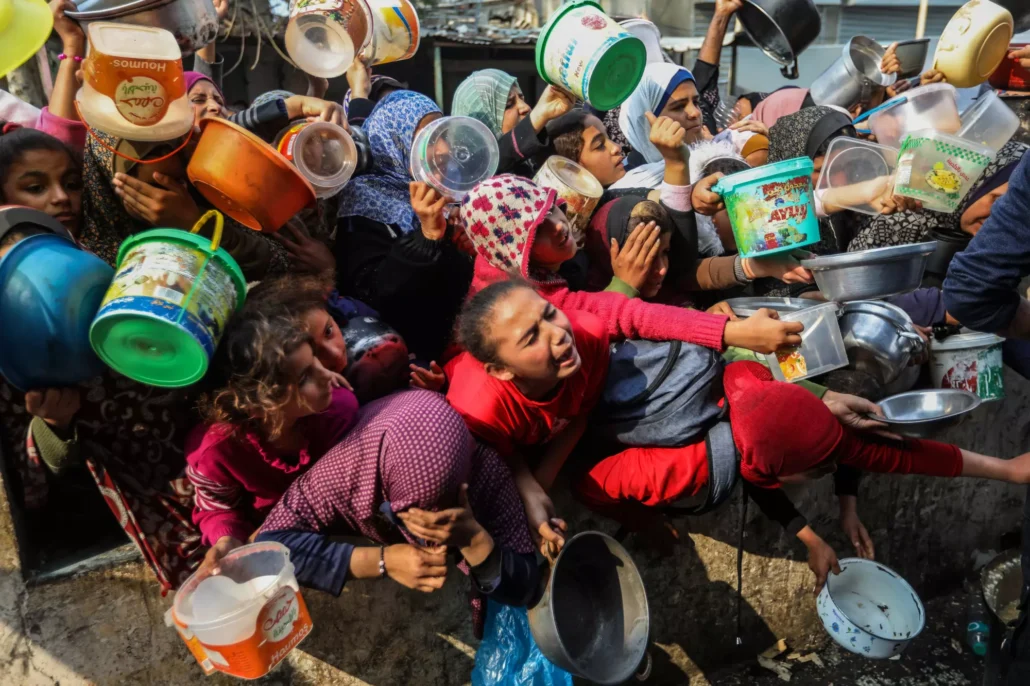
The Israeli-Palestinian conflict has been ongoing for a long time, dating back to the wave of independence when countries freed themselves from colonialism at the end of World War II. Palestine is a territory still under Israeli colonization. It is a country established after World War II. The formation of the State of Israel is similar to that of the United States and Australia in that they are new nations formed through colonization. They are settlers who arrived on new land and sought to control it by eliminating the indigenous population. The difference is that the Palestinian people are still fighting for independence from ongoing occupation. This article will discuss the silence of various strategic actors who should have firmly supported Palestine and the cessation of the genocide in Gaza. Israeli Atrocities in Gaza The Israeli occupation of Palestine continues to this day and has become even more brutal. Prior to October 7, 2023, Israel consistently attacked the Palestinian people every year under various pretexts, most of which were based on self-defense. Since October 7, 2023, Israeli attacks have continued daily, claiming tens of thousands of lives, mostly children and women (Shurafa & Khaled, 2025). According to Rachel Fieldhouse’s article, an independent survey found new evidence suggesting that the number of victims exceeds previous estimates of more than 80,000 (Fieldhouse, 2025). This cruelty is ongoing as of this writing and cannot be adequately described by the attacks’ targets and the number of lives lost as a result. Furthermore, Israel has violated numerous international laws, including those it has ratified. These violations include war crimes and crimes against humanity; the use of starvation as a weapon of war; violations of the Fourth Geneva Convention; collective punishment and perfidy; attacks on healthcare and humanitarian workers; obstruction and restrictions on humanitarian aid; violations of the rights of children and disabled persons; and recent military strikes beyond Palestinian territories (Baboolal, 2024; Joseph, 2024; Sayegh, 2023; UNHR, 2024). These atrocities have prompted South Africa to file a complaint against Israel at the ICJ for genocide. Even worse, these atrocities are being witnessed live by the entire international community and world leaders. Despite thorough documentation of these atrocities, Israel continues its attacks in Gaza. This has not deterred Israel nor prompted the international community to take firm and concrete action to stop the injustices and atrocities committed by Israel in Gaza. The genocide in Gaza has revealed who the pro-injustice actors are. Here, pro-injustice is defined as acts of approval or acquiescence toward injustice occurring before one’s eyes with full awareness. This can also be associated with remaining silent in the face of injustice. Often, words do not align with actions, therefore judgment should be based on actions, not words. Pro-injustice Stance In general, this stance can be classified into two categories: (i) the silence of international human rights organizations, and (ii) the silence of international actors with identity similarities. This classification is based on observations of actors who should have reacted to defend Gaza, yet remained silent. Additionally, it is based on the factors that drive actors to take a stance, whether in the form of ideas or internalized identities. The Silence of International Actors of Human Rights Buzzwords Human rights are a fundamental, universal concept recognized by nearly all nation-states worldwide. Western actors often champion this concept to spread democratic ideas throughout the world. Therefore, countries with democratic principles are generally vocal about fighting for human rights, especially Western countries. Unfortunately, however, human rights are only enforced against non-democratic actors who violate them. When democratic countries commit these violations, however, they tend to remain silent and hesitate to speak out. This suggests that their shared identity as Western democratic countries is more important to them than the idea of justice they have fought for. Despite committing human rights violations against the Palestinian people, Freedom House categorizes Israel as “fully free” (Freedom House, 2025). This contradicts Israel’s actions of restricting independent journalists from covering events in Palestinian territories. This reality invalidates the idea that democracy goes hand in hand with the enforcement of human rights. Even more shocking is that, in a survey, the majority of Israelis said they wanted the Palestinians killed. Although this attitude contradicts the concept of human rights, several Western democracies continue to openly side with Israel. The Silence of International Actors of Identity Similarity Identity is one of the key factors influencing an actor’s behavior. As part of the international community, the Palestinian people share many identity similarities with various state actors around the world. Broadly speaking, these similarities encompass two things: first, a shared identity with various Arab countries, and second, a shared religious background with various Muslim countries. These two identities have one thing in common: they are both unable to stop the genocide in Gaza. Palestine and Arab countries have a long history together. This solidarity is evident in the spirit behind the establishment of the Arab League, which was motivated by the desire to liberate Palestine from Israeli occupation. This shared identity is also reflected in the creation of Pan-Arabism, a common ideology that shares the same goal of liberating Palestine. However, this shared identity is increasingly eroded by the domestic interests of individual countries. Arab countries’ resistance to Israel has weakened over time, and several dominant Arab countries have established diplomatic relations with Israel. These relations create a dilemma for Arab countries when forming a stance amid Israel’s genocide in Gaza. On the other hand, Palestine shares a common identity with Muslim countries around the world. While not all Palestinians are Muslim, most are. Beyond numbers, this shared identity stems from the perception that the conflict is religious (between Islam and Judaism). This religious identity significantly impacts the ability to secure support from countries with Muslim majorities, particularly from their populations. However, these countries have yet to achieve strong unity, leaving them without the power to alter the current situation. Several Muslim countries, such as Indonesia, are quite vocal in raising the Palestinian issue
What’s Next for Southeast Asia’s Automotive Industry in 2025?
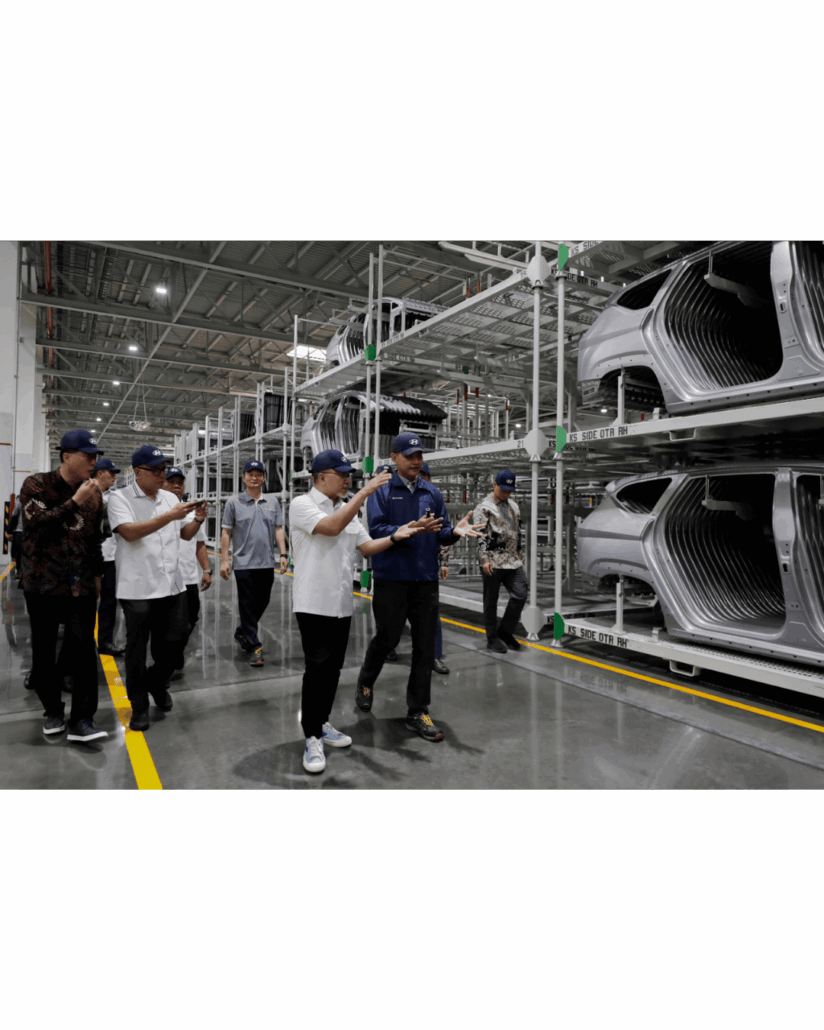
Southeast Asia’s automotive industry has experienced significant growth in the past decade. This was evident when Thailand ranked among the world’s top 10 automotive producers in 2012, with annual production exceeding 2.45 million vehicles (Techakanont, 2017). Indonesia also showcased its potential, with vehicle production surpassing 1 million units in the same year (Rachman, 2012). Additionally, notable national automotive brands such as Proton and Perodua in Malaysia, as well as Vinfast from Vietnam, have made their mark in the industry. Proton and Perodua have been active for over two decades in Malaysia, while Vinfast, despite being relatively new, has expanded internationally and is now establishing a manufacturing base in the United States (Tempo, 2024). However, the industry’s future does not look as promising today. The COVID-19 pandemic drastically impacted all sectors, including the automotive industry. In April 2020, during the initial global lockdown, there was a significant drop in four-wheeled vehicle production across Southeast Asia. Thailand and Indonesia were severely affected, with production plummeting by approximately 80% compared to the same period the previous year (Thailand Automotive Institute, 2020). This bleak scenario was compounded by ongoing global economic uncertainty in the aftermath of the pandemic. Challenges such as the prolonged Russia-Ukraine conflict, rising energy costs during the post-pandemic recovery period, and escalating trade tensions between the United States and China, including unilateral tariff impositions by the U.S., further strained the industry. These tensions have exerted substantial pressure on the sector. As Chinese industries adapted their strategies to focus on markets outside the U.S., Southeast Asia saw a surge in the presence of Chinese electric vehicles (EVs) (Bhaumik, 2023). Additionally, the U.S.’s unilateral tariff policies did little to aid the industry’s recovery in Southeast Asia. Thailand, for instance, faced direct repercussions due to its significant export of automotive components to the U.S. (Board & Mahmud, 2025). It is important to note that the automotive industry has extensive ripple effects due to its interconnected supply chain. While assembly units are the ones that are visible to public consumers, the industry is supported by thousands of suppliers that provide components such as steel for vehicle frames, plastics for accessories, copper and cables for electrical systems, and semiconductors for embedded electronics (Dicken, 2011). Thus, any slowdown in the automotive industry impacts various related sectors in Southeast Asia, where most components are locally sourced (Hsiao, 2024), further amplifying economic challenges. The slowdown in Southeast Asia’s automotive industry is evident in several countries. Nissan decided to close its assembly plant in Indonesia in 2020, effectively ceasing sales under the Datsun brand (Tempo, 2020). By 2024, other manufacturers like Subaru and Suzuki followed suit, halting their operations in Thailand and Malaysia (Marus, 2024). Honda also announced the deactivation of one assembly plant in Thailand in 2025 due to declining production output (Leussink, 2024). In response, Southeast Asian countries have actively implemented measures to sustain their automotive industries. One notable strategy involves promoting the development of EV production bases. In 2019, Thailand introduced incentives for investments in EV-related industries, including battery manufacturing and assembly of motorcycles, cars, buses, and trucks (Thailand Board of Investment, 2019). Indonesia issued similar policies through Presidential Regulation No. 55 of 2019, which provided incentives for EV component and assembly industries and tax breaks for EV ownership (Presiden Republik Indonesia, 2019). Malaysia unveiled its fourth National Automotive Policy (NAP 2020) in 2020, focusing on EV industry development and envisioning Malaysia as a regional production hub (Malaysia Ministry of Trade and Industry, 2020). Vietnam also rolled out EV-related incentives in 2023, complementing consumer EV ownership benefits that had been in place since 2022 (Ha & Phung, 2023). Amid these dynamics, Southeast Asia’s automotive industry continues to adapt to domestic, regional, and global conditions. Adaptation encompasses adopting new automotive technologies and devising strategies to endure and grow amidst economic and political uncertainties. As noted by Board and Mahmud, Southeast Asia’s automotive industry is less dependent on markets in developed countries like the U.S. or Europe, except Thailand, which has a higher export volume relative to its domestic market. Strengthening intra-ASEAN markets and expanding to untapped Southern markets are crucial (Board & Mahmud, 2025). This approach is further complemented by domestic market initiatives offering tax incentives to boost EV adoption, ensuring the sustainability of local automotive industries. Additionally, it is essential to recognize that the automotive industry is not solely about assembly units but also involves the broader supplier network. As various automotive principals establish assembly bases in the region, this encourages the development of local automotive component industries. Governments across Southeast Asia are leveraging this opportunity by offering incentives for advanced technology investments and vehicle assembly processes, both conventional and electric, to maintain industry stability and performance. Despite facing various global challenges, Southeast Asia’s automotive industry has shown resilience through its distinctive strategies and characteristics. Governments in the region are continually advancing industry capabilities through incentives for technological development and modern vehicle assembly methods, ensuring relevance in the future. Such efforts are complemented by consumer incentives aimed at boosting domestic market adoption. Additionally, ASEAN governments can enhance regional cooperation to expand the scope of the automotive market, which has traditionally been limited. By diversifying markets, Southeast Asia’s automotive industry can not only survive but also thrive, positioning itself as a regional or even global production hub. References Bhaumik, T. (2023). The US-China Trade War: Impacts On Chinese And American Automotive Firms In Terms Of Market Performance, Financial Performance, And Global Competitiveness. The National High School Journal of Science. Board, J., & Mahmud, A. H. (2025, April 4). Trump’s 25% auto tariffs: Price cuts and ‘safe mode’ – how Southeast Asia players might ride out turbulence. from Channel News Asia: https://www.channelnewsasia.com/asia/trump-tariffs-automotive-car-trade-thailand-southeast-asia-5044141 Dicken, P. (2011). Global Shift: The Changing Contours of the World Economy (6th ed.). New York: The Guilford Press. Ha, T., & Phung, T. (2023, 4). Incentives proposed for EV manufacturers, buyers in Vietnam. from Vietnam News: https://news.tuoitre.vn/incentives-proposed-for-ev-manufacturers-buyers-in-vietnam-10374795.htm Hsiao, J. (2024, Jan./Feb.). Overview of Automotive and Components Production and Sales in ASEAN. Fastener World(204), pp. 231-235.
Trade War 2.0: United States vs. China—Who Will Be the Winner?
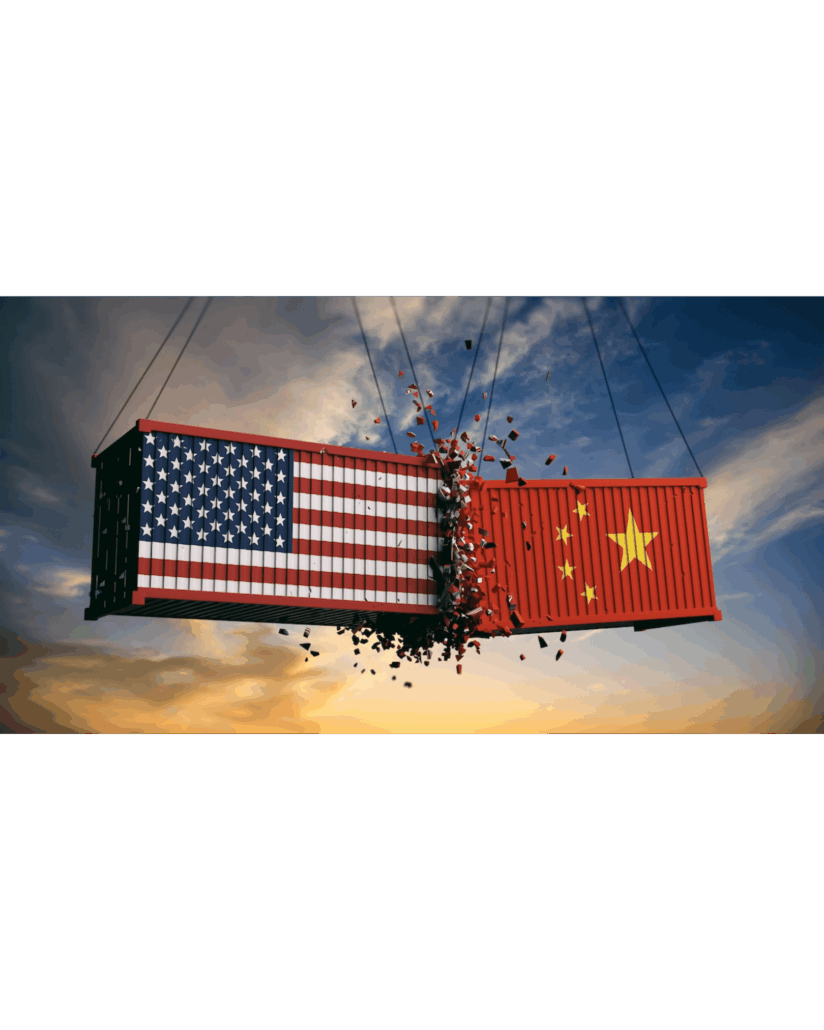
A New Chapter in the Trade War In early April 2025, the United States, under President Donald Trump’s administration, issued a policy increasing import tariffs on Chinese products up to 145%. These tariffs applied not only to tangible goods but also to digital technology products such as semiconductor chips, Artificial Intelligence (AI) hardware and software (Reed, 2025). In response to Trump’s measures, China retaliated by imposing 125% tariffs on U.S. products, particularly targeting agricultural and energy commodities, leading to a lack of market access for U.S. goods in China (CNBC, 2025). The trade war competition began between Donald Trump and Xi Jinping during 2018–2019, commonly referred to as “Trade War 1.0,” and started when President Donald Trump announced elevated tariffs on Chinese exports and imports, particularly focusing on physical goods and trade imbalances in consumer products (Kleintop, 2024). Unlike “Trade War 1.0,” which focused on physical goods, “Trade War 2.0,” started from 2020 to 2025 has expanded its scope to include digital technology sectors such as semiconductor chips, Artificial Intelligence (AI) hardware and software (Kleintop, 2024). Another key difference is that while “Trade War 1.0” retaliation emphasized tariffs and market access restrictions, “Trade War 2.0” has seen a shift toward tightening technology controls and restricting the trade of digital technologies. When we examine the differences between Trade War 1.0 and 2.0, it becomes evident that over the years, the two giant nations—the United States and China—have shifted their focus and priorities. Whereas Trade War 1.0 primarily concerned trade balances and physical goods, Trade War 2.0 is increasingly about technological security, Intellectual Property Rights (IPR), and dominance over technological supply chains (Dieter, 2019). Consequences of Trade War 2.0 Firstly, this trade war has impacted several major companies, such as Huawei, one of the largest multinational corporations in the technology and communications sector. Another affected company is SMIC (Semiconductor Manufacturing International Corporation), the largest semiconductor and chip manufacturer company in China, established in 2000 and headquartered in Shanghai (Kubota, 2024). Secondly, it has generated instability within the global economic system, triggering significant changes in global supply chains. Many companies have shifted production from China to alternative locations such as India and Vietnam, while the semiconductor-dependent technology industry increasingly looks to Taiwan and South Korea. Thirdly, it has created a Global Trade Disruption, altering the traditional patterns of trade. This disruption was largely driven by President Donald Trump, following the advice of Peter Navarro, Director of the White House’s Office of Trade and Manufacturing Policy (OTMP) during Trump’s second term, beginning on January 20, 2025. Navarro promoted the “Make America Great Again” agenda by advocating protectionism (Ball, 2018). This shift resulted in higher tariffs, restricted access to foreign products, elevated consumer prices, job losses, and supply shortages for industries reliant on imported raw materials. Is Dependency Still a Reality? When examining Trade War 2.0, it becomes evident that the United States cannot fully sever its dependency on China. Data on U.S. import values based on its five largest trading partners from 2014 to 2023 consistently show that China has remained the United States’ largest trading partner for most of that period. By the end of 2023, however, Mexico overtook China, registering U.S.$480.1 billion in trade compared to China’s U.S.$448 billion. Other major partners included Canada (U.S.$431.2 billion), Germany (U.S.$163.1 billion), and Japan (U.S.$151.6 billion) (Katadata, 2025). This enduring interdependence explains China’s confidence in retaliating, recognizing that American businesses and consumers continue to heavily rely on Chinese imports. U.S. Import Values by Top 5 Trading Partner Countries (2014–2023) Source: (Katadata, 2025) Economic Perspectives: Insights from Stiglitz and Krugman Based on the data presented above, China has been emboldened to pursue retaliation, believing that such measures could, in fact, pose significant difficulties for the United States itself. This view is further supported by statements from two prominent U.S economists, Joseph Stiglitz and Paul Krugman, who have critically assessed the potential consequences of Trade War 2.0 (Greenhouse, 2025): Is a ‘Global Broker’ Needed? In this context, the emergence of a ‘Global Broker’ – countries or international organizations that act as intermediaries to stabilize global economic tensions has become increasingly crucial. Entities such as the World Trade Organization (WTO), the International Monetary Fund (IMF), and the European Union (EU) are expected to mediate these tensions and promote multilateral solutions (Midfa, 2025).In addition to the idea of a “Global Broker,” several countries, particularly developing countries, have already begun seeking ways to reduce their dependence on these two major powers by turning to alternative partners such as India and Brazil to expand their economic influence in the global market. Developing countries also need to strengthen cooperation, foster innovation, and adopt multilateral approaches to promote sustainable economic stability and growth. United States vs. China: Who Will Win? Strengths and Weaknesses There will be “No Absolute Winner” in this trade war. Instead, we are witnessing a transformation from globalization to geo-economic blocs. Trade War 2.0 has made it clear that the world’s economies are deeply interconnected, and there is a shift underway from the dominance of free trade toward rising protectionism (Miller, 2025). Both countries are now competing for supremacy in digital technology sectors such as semiconductor chips, Artificial Intelligence (AI) hardware and software (Reed, 2025). The winner of this trade war is not as straightforward as it may seem. On one side, the United States continues to play a dominant role in the global economy, maintaining leadership in the financial system, global trade, technology, and military power. Furthermore, the United States safeguards the value of the U.S. dollar as the world’s primary reserve currency, enabling it to be widely used in international transactions, but the United States also remains heavily dependent on China’s global market. On the other side, China is emerging as a new global power with a strong focus on technology and infrastructure development. China is advancing its strategic influence by forming alliances with developing countries through the Belt and Road Initiative (BRI) and by introducing the Cross-Border Interbank Payment System (CIPS) in 2015 as part of its efforts to promote the use of the yuan (renminbi) in
Potensi Benturan Norma Jika Perguruan Tinggi Mengelola Tambang

Dalam fikih prioritas, meninggalkan sesuatu yang mudaratnya lebih besar daripada manfaatnya adalah pilihan terbaik (Qardhawi, 2006). Salah satu implementasinya adalah meninggalkan gagasan pengelolaan tambang untuk perguruan tinggi (PT). Gagasan untuk menyejahterakan PT melalui pemberian izin pengelolaan tambang, baik secara langsung maupun lewat BUMN, berpotensi bertabrakan dengan banyak norma. Benturan dengan norma-norma ini akan berdampak signifikan dalam meluruhkan martabat PT. Tulisan ini bertujuan menambah argumen negasi yang sudah ada, namun dari sudut pandang norma internasional. Norma Keadilan Sampai saat ini, usulan pemberian izin pengelolaan tambang pada PT masih abstrak, namun dampak buruknya telah dapat diterawang. Pertama, pengelolaan yang dilakukan oleh PT berpotensi bertabrakan dengan norma keadilan. Paling tidak, pengelolaan tambang oleh PT akan bermasalah dengan keadilan distributif. Norma keadilan distributif mensyaratkan pembagian yang wajar atas sumber daya yang ada, yang disesuaikan dengan kondisi masing-masing pihak. Pembagian izin pengelolaan tambang pada PT akan runyam mengingat jumlah PT yang mencapai lebih dari 5000 institusi, jenis yang beragam, kekuatan finansial yang berbeda, kemampuan manajerial yang tidak sama, jumlah mahasiswa yang tidak merata, dan lokasinya yang tersebar di seluruh pelosok Indonesia. Akan sulit untuk membayangkan, agar adil, kira-kira pembagian izin tambang tersebut didasarkan atas apa? Atas dasar jenis PT atau atas kemampuan manajerial berdasarkan akreditasi dan peringkat? Jika menggunakan kedua kriteria ini saja, maka hanya PT yang berada di Pulau Jawa sajalah yang akan mendapat izin tambang. Padahal lokasi industri pertambangan kebanyakan di luar Pulau Jawa. Lalu bagaimana dengan PT yang dekat dengan industri tambang? Berkolaborasi dengan PT di Jawa? Pembagian kerja dan hasilnya bagaimana? Bayangkan lagi bagaimana runyamnya jika izin tambang diberikan ke lebih dari 5000 PT tersebut. Alih-alih berkontribusi pada kesejahteraan PT, yang akan terjadi adalah keributan massal atas ketidakadilan pembagian jatah pengelolaan tambang. Jika ini terjadi, maka energi PT akan terkonsentrasi pada gulat pengelolaan tambang. Energi PT yang harusnya fokus pada dunia pendidikan, penelitian, dan pengabdian pada masyarakat akan tergeser pada bisnis ekstraktif yang rawan ketidakadilan. PT tidak akan lagi hadir dalam membela keadilan masyarakat, tapi justru akan membela kepentingan korporasi. Dalam hal ini, tidak ada skenario yang mendukung pencapaian keadilan baik bagi masyarakat maupun antar-PT jika PT mengelola tambang. Norma Transparansi Industri Ekstraktif Kedua, pengelolaan tambang oleh PT akan berpotensi menjebak PT dalam pelanggaran norma transparansi industri ekstraktif. Norma transparansi industri ekstraktif ini dilembagakan dalam Extractive Industry Transparency Initiative (EITI) yang berdiri sejak 2003 (EITI, n.d.). Setiap tahunnya, 52 negara yang berkomitmen pada norma transparansi industri ekstraktif mengirimkan laporan ke EITI. Indonesia menjadi salah satu negara yang berkomitmen dan menjadi negara di Asia Tenggara pertama yang telah mengirimkan laporannya sejak tahun 2007 (Kementerian Energi dan Sumber Daya Mineral, 2020). Dalam validasi EITI atas laporan Indonesia pada tahun 2024, skor keseluruhan Indonesia adalah 63/100 atau terkategori “fairly low.” Meskipun Indonesia telah berkomitmen melaporkan informasi terkait industri ekstraktifnya, masih terdapat celah dalam pelaporan tersebut. EITI mencatat adanya masalah data yang tidak dipublikasi dan data yang belum dapat diverifikasi kesesuaiannya. Data yang tidak dipublikasi di antaranya adalah data kontrak bisnis dan nilai produksi, sedangkan yang belum terverifikasi adalah data beneficial ownership atau pemilik manfaat akhir dari usaha tambang tersebut. Lebih jauh lagi, laporan independen dari Transparency International Indonesia (TII) tahun 2024 memberikan skor 0,31 atau sangat rendah pada aspek transparansi korporasi untuk aspek antikorupsi. Sedangkan skor 0,30 yang juga setara dengan sangat rendah untuk transparansi aspek sosial dan hak asasi manusia (HAM). TII juga menemukan bahwa hanya 17 dari 121 perusahaan tambang yang mempublikasikan laporannya di laman perusahaan. Rendahnya komitmen perusahaan tambang dalam upaya antikorupsi menunjukkan bahwa industri tambang merupakan industri yang sangat rawan korupsi. Lingkup korupsi ini bisa dimulai dari proses perizinan sampai pengawasan kegiatan pertambangan. Longgarnya regulasi dan orientasi maksimalisasi keuntungan juga berkontribusi terhadap tingginya risiko korupsi dan kerusakan lingkungan. Jika PT diberikan izin pengelolaan tambang, tidak ada jaminan pelaporannya akan lebih transparan. Yang ada, PT akan terseret dalam pusaran kasus korupsi tambang. Berkaca pada kasus Harvey Moeis, kasus pidana korupsi tambang melibatkan kerugian negara sampai ratusan triliun rupiah. Berat rasanya membayangkan seorang insan cendekia kampus atau guru besar didakwa kasus korupsi tambang dengan kerugian negara yang sebegitu besar. Jika ini benar-benar terjadi, maka lunturlah kepercayaan masyarakat terhadap PT yang menjadi suar etika dan moral bangsa. Norma Perlindungan HAM Ketiga, PT juga berisiko terlibat dalam pelanggaran norma perlindungan HAM. Pelanggaran HAM akibat dari usaha pertambangan bukan omong kosong. Komisi Nasional (Komnas) HAM menyampaikan laporan pelanggaran HAM atas usaha pertambangan di berbagai daerah. Dalam laporannya tahun 2022, Komnas HAM mencatat pelanggaran HAM di Sulawesi Tengah berupa penyerobotan tanah, penembakan oleh oknum polisi pada aksi demo menolak tambang, dan penutupan akses bagi warga dalam pemanfaatan ruang untuk pengelolaan sumber daya alam masyarakat adat Poboya. Pada tahun yang sama, Amnesty International juga menyoroti pelanggaran HAM atas rencana penambangan emas di Blok Wabu, Kabupaten Intan Jaya, Provinsi Papua (Amnesty International, 2022). Rencana penambangan ini akan melanggar hak-hak warga adat dan berpotensi merusak lingkungan sekitarnya. Sekali lagi, mari kita bayangkan jika PT diberikan izin mengelola tambang di daerah seperti Intan Jaya. Tidak ada jaminan bahwa PT akan lebih diterima oleh masyarakat adat. Yang pasti, PT akan terlibat dalam pelanggaran HAM masyarakat adat, menghilangkan sumber makanan utama mereka, mencemari lingkungan, dan memaksakan kepentingan dengan kekerasan. Tidak ada hal hebat yang akan didapat oleh PT atas pelanggaran HAM tersebut. Yang ada, PT Indonesia akan menjadi satu-satunya institusi pendidikan di dunia yang melakukan pelanggaran HAM atas dasar kesejahteraan PT. Pelanggaran atas tiga norma ini saja rasanya cukup untuk menangkis argumen pemerintah dan selintir PT yang mendukung gagasan pengelolaan tambang oleh PT. Para cerdik pandai di PT tahu betul bahwa kesesatan dalam berpikir akan melahirkan kerusakan dunia yang nyata. Semoga tidak terjadi. Referensi Qardhawi, Yusuf. (2006). Fi Fiqhil Aulawiyyat. Kairo: Maktabah Wahbah EITI. (n.d.). https://eiti.org/our-mission. Diakses pada 1 March 2025. Kementerian Energi dan Sumber Daya Mineral. (2020). Laporan EITI Indonesia 2019-https://portaldataekstraktif.id/storage/post-file/20240604163711/laporan%20eiti%20indonesia%202019-2020.pdf. Diaksespada 1 Maret 2025. Amnesti Internasional. (2022). Perburuan Emas: Rencana Penambangan Blok WabuBerisiko Memperparah Pelanggaran HAM di Papua. https://www.amnesty.id/wp-content/uploads/2022/03/Perburuan-Emas.pdf. Diakses pada 1 Maret 2025
Gencatan Senjata Gaza: Akhir Ketegangan atau Sekedar Jeda?
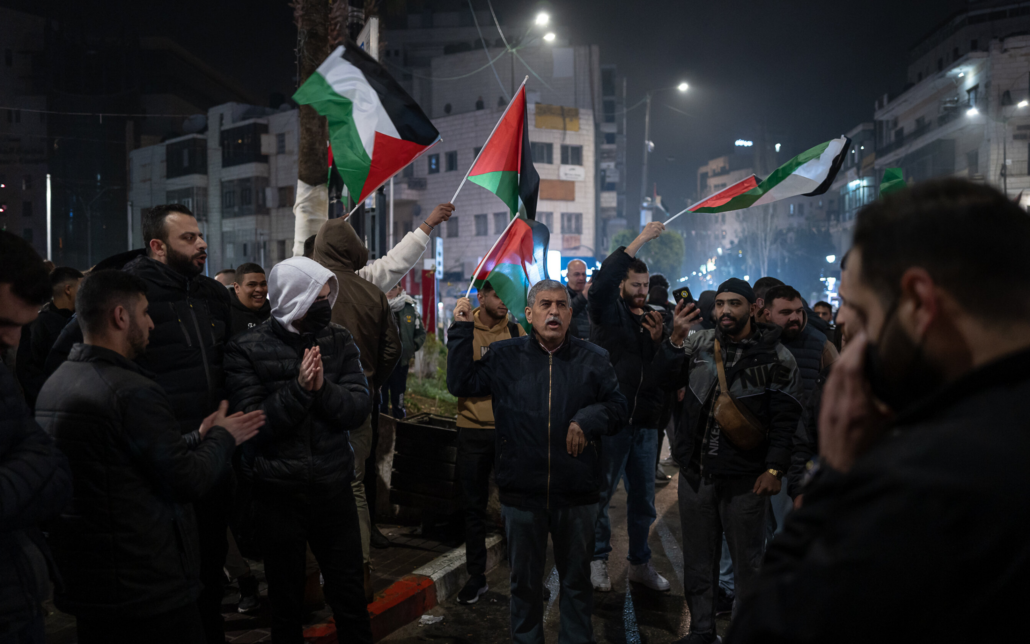
Sejak 7 Oktober 2023, penyerangan Israel ke Gaza sampai hari ini telah menewaskan 110.000 ribu jiwa hingga terjadi genosida besar-besaran (Amnesty International, 2025). Saat ini konflik Israel – Palestina telah melakukan gencatan senjata. Tentunya yang terlibat dalam perundingan tersebut adalah Hamas dan Israel. Secara resmi gencatan senjata tersebut dilakukan pada hari Minggu 19 Januari 2025. Gencatan senjata ini seharusnya dilakukan sejak Senin 13 Januari 2025, tetapi mengalami penundaan sampai pada hari Minggu. Hal ini dilakukan tepat sehari sebelum presiden baru Amerika Serikat yaitu Donald Trump dilantik. Tanda awal berlakunya gencatan senjata antara Israel – Palestina adalah adanya pertukaran sandera tahanan Israel dan tahanan Palestina. Gencatan senjata ini akan dilakukan selama 42 hari sejak terhitung Minggu 19 Januari 2025. Dengan adanya gencatan senjata ini, tentunya menimbulkan harapan baru bagi warga Palestina tentang perdamaian yang dimana mereka telah berjuang mati-matian selama ini. Seperti ungkapan warga Palestina bahwa: “Kesepakatan gencatan senjata ini merupakan hasil dari keteguhan nyata rakyat Palestina dan perlawanan gagah berani kami di Jalur Gaza selama lebih dari 15 bulan.” Dari sisi Israel memiliki pendapat yang berbeda. Netanyahu menyampaikan bahwa gencatan ini adalah gencatan senjata di Gaza dengan Hamas, yang akan berlaku Ahad 19 Januari 2025, hanya akan menjadi kesepakatan sementara (Jerusalem Post, 2025). Maka timbul sebuah pertanyaan apakah ini menjadi sebuah jeda atau akhir ketegangan. Ada beberapa syarat dari gencatan senjata yang dilakukan oleh Israel dan Palestina. Kesepakatan yang pertama adalah penarikan pasukan Israel. Tentara Israel akan ditarik dari daerah padat penduduk di sekitar perbatasan Gaza serta wilayah perlintasan termasuk Wadi Gaza. Penarikan ini bertujuan untuk mengurangi eskalasi konflik dan memberikan ruang bagi upaya kemanusiaan. Tentara Israel akan ditempatkan di wilayah yang lebih jauh dari daerah penduduk dengan pengawasan yang lebih ketat di jalur perbatasan. Kesepakatan yang kedua adalah prisoner exchange. Terjadi beberapa poin kesepakatan pertukaran tahanan antara Israel dan Palestina berdasarkan persetujuan kedua belah pihak. Dari semua poin-poin kesepakatan prisoner exchange, tahanan wanita dan anak-anak akan menjadi prioritas dalam pembebasan ini. Kesepakatan ketiga adalah Israel akan secara bertahap mengurangi keberadaan pasukannya di Philadelphi Corridor. Penarikan pasukan dilakukan untuk menciptakan rasa aman bagi warga sipil Palestina di sekitar jalur perbatasan. Batas waktu pengurangan dan penarikan pasukan ini tidak akan memakan waktu lebih dari 50 hari. Kesepakatan yang keempat adalah perbatasan Rafah dimana jalur ini akan digunakan untuk transfer warga sipil yang terluka dan menjadi jalur untuk kegiatan kemanusiaan dengan pengawasan ketat oleh mediator. Kesepakatan yang kelima adalah pemulangan pengungsi Palestina yang telah terusir, dimana mereka diizinkan kembali ke rumah masing-masing tanpa membawa senjata. Terdapat proses evakuasi bagi warga sipil dan terluka dengan melintasi perbatasan Rafah. Kemudian kesepakatan yang terakhir adalah adanya protokol bantuan kemanusiaan. Semua prosedur kemanusiaan akan diawasi oleh mediator internasional sesuai dengan protokol yang telah disepakati. Walaupun sudah terjadi persetujuan tentang syarat gencatan senjata, tetapi pasukan Israel masih melakukan pelanggaran mengenai gencatan senjata. Sebagai contoh adalah kendaraan militer Israel melepaskan tembakan di jembatan Wadi Gaza, Gaza Tengah pada tanggal 21 Januari 2025. Kesepakatan gencatan senjata antara Israel dan Hamas mendapat sambutan positif dari para pemimpin dunia dan organisasi internasional, yang berharap langkah ini dapat mengakhiri agresi Israel di Jalur Gaza sejak 7 Oktober 2023. Terdapat beberapa tanggapan dan reaksi dari pemimpin dunia dan organisasi internasional mengenai gencatan senjatan ini. Pertama dari mantan presiden Amerika Serikat Joe Biden. Biden mengatakan bahwa gencatan senjata ini sesuai dengan usulan yang disampaikannya pada 31 Mei 2024 dan disepakati oleh DK PBB. Ia juga menyambut baik gencatan senjata ini, memberikan harapan bagi kembalinya warga negara Amerika Serikat yang disandera di Gaza (Brookings Institution, 2025). Keir Starmer sebagai Perdana Menteri Inggris menyatakan bahwa gencatan senjata ini adalah “kabar yang tertunda lama” dan menjadi peluang untuk memberikan bantuan kemanusiaan yang dibutuhkan untuk mengakhiri penderitaan di Gaza (BBC News, 2025). Ia juga mendorong upaya mencapai solusi permanen untuk mengakhiri konflik Israel-Palestina berdasarkan solusi dua negara. Mohammed bin Abdulrahman Al Thani, Perdana Menteri Qatar menyatakan bahwa kesepakatan ini baru langkah awal menuju perdamaian. Antonio Guterres sebagai Sekretaris Jenderal PBB sangat mengapresiasi kesepakatan tersebut dan meminta semua pihak untuk mematuhi ketentuannya. PBB siap mendukung implementasi kesepakatan ini dan meningkatkan pengiriman bantuan kemanusiaan yang berkelanjutan kepada warga Palestina (United Nations Report, 2025). Masih banyak lagi reaksi dari pemimpin dunia dan organisasi internasional terhadap gencatan senjata Israel-Palestina. Mereka sangat menyambut positif dan optimis adanya gencatan senjata tersebut, dengan harapan adanya perdamaian yang permanen di masa depan antara Israel-Palestina. Ada beberapa dampak positif dari adanya gencatan senjata tersebut. Adapun dampak positif tersebut adalah pemulihan psikologis, pembebasan tahanan, rekonstruksi infrastruktur, dan memperbaiki keadaan ekonomi (World Bank Report, 2025). Sehingga besar harapan terjadinya perdamaian permanen antara Israel-Palestina karena banyak sekali membawa dampak positif bagi kedua negara tersebut dan dunia. Dalam sebuah artikel mengatakan bahwa Trump berharap dengan adanya gencatan ini, mampu mewujudkan perdamaian dan menormalisasi hubungan Arab – Israel (New York Times, 2025). Akan tetapi fakta yang ada adalah terdapat penolakan keras dari Menteri Keuangan Israel Bezalel Smotrich. Dia mengatakan bahwa akan mengancam Perdana Menteri Israel Benjamin Netanyahu jika jalur Gaza tidak dikuasai oleh Israel. Bezalel mengatakan bahwa ini menjadi sebuah kesalahan serius Israel dan bentuk penyerahan diri Israel terhadap Hamas. Selain itu, jika melihat kebijakan luar negeri Amerika Serikat di bawah Trump, terdapat tantangan yang akan dihadapi oleh Palestina-Israel dalam melakukan gencatan senjata. Sehingga muncul pertanyaan, sejauh mana endurance Trump dalam gencatan senjata Israel-Palestina? Tidak bisa dipungkiri realita bahwa Trump tidak bisa memberikan jaminan gencatan senjata di Gaza dapat bertahan. Trump masih melihat bahwa Hamas adalah ancaman bagi Amerika Serikat. Trump juga masih tidak tertarik membahas mengenai pembentukan negara Palestina. Terakhir adalah Trump tidak melarang rencana Israel untuk menguasai lebih banyak wilayah di Tepi Barat. Sehingga apakah ini menjadi sebuah akhir dari ketegangan atau sekedar jeda melihat kebijakan luar negeri Amerika Serikat di bawah Trump seperti itu. Referensi Amnesty International. (2025). Gaza conflict and human rights violations: An investigative report. Amnesty International. Diakses pada 13 Februari 2025 dari https://www.amnesty.org Brookings Institution. (2025). U.S. foreign policy and the Israel-Palestine conflict under Trump’s administration. Brookings Institution. Diakses pada 13 Februari 2025 dari https://www.brookings.edu British Broadcasting Corporation (BBC). (2025, 20 Januari). World leaders react
